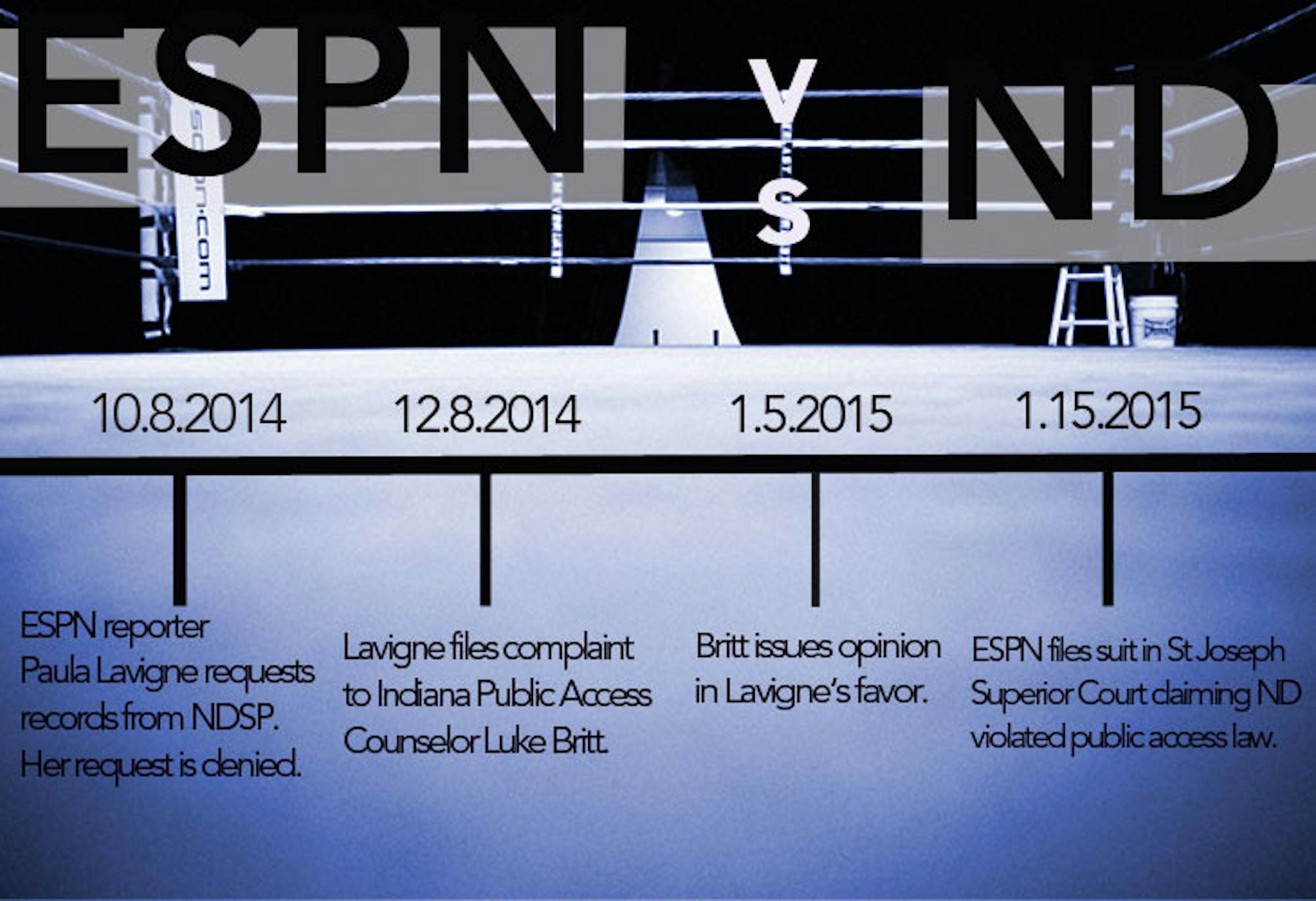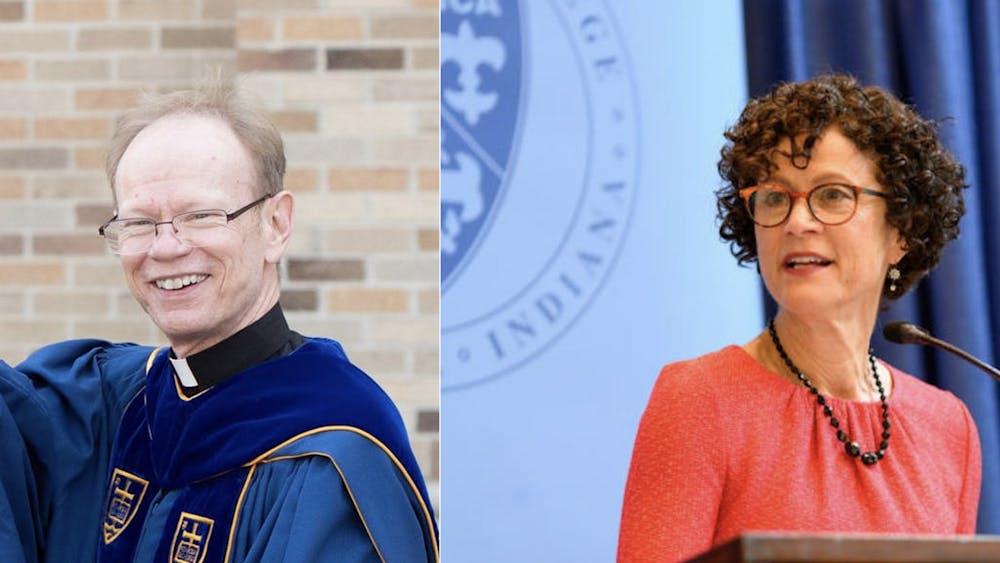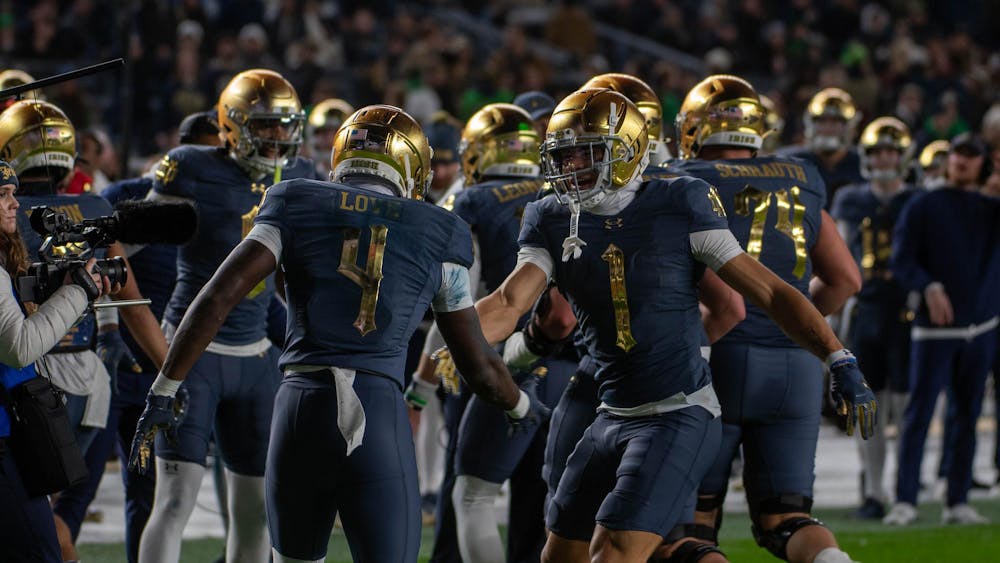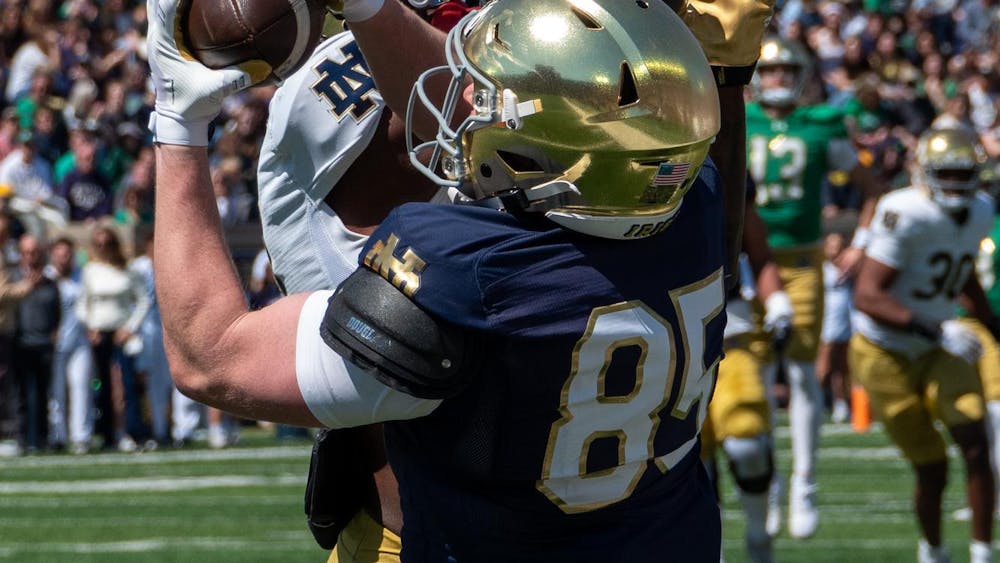
Susan Zhu
ESPN filed a lawsuit against Notre Dame earlier this month claiming the University's refusal to release campus police records violates Indiana's public records law, according to a report Wednesday in the South Bend Tribune.
The case, filed Jan. 15 in St. Joseph Superior Court, alleges that Notre Dame officials violated Indiana's Access to Public Records Act when they refused to release Notre Dame Security Police (NDSP) records requested by ESPN reporter Paula Lavigne, the Tribune reported.
In September and November 2014, Lavigne formally requested police incident reports and logs related to Notre Dame student athletes but was turned down both times, according to the Tribune. She filed complaints with Indiana Public Access Counselor Luke Britt in October and December, according to documents available on the Public Access Counselor website. Britt is an attorney appointed by the governor to advise on public access matters.
"As we have previously said, our practices are in full accord with the Access to Public Records Act and consistent with multiple advisory opinions that have addressed this matter over the past 12 years," University spokesman Dennis Brown said in an email Wednesday afternoon. "We are confident that our position will be affirmed in court."
ESPN submitted two written opinions by Britt as evidence in the lawsuit, the Tribune reported. Britt's recent written opinions departed from that of previous public access counselors, who had written that professional police departments at Indiana private universities did not meet the definition of public agencies and so were exempt from the state's public records law. Britt's opinion is not compulsory and does not carry the force of law, but the superior court decision will.
Britt's Oct. 31 opinion put Notre Dame on notice that his office considers NDSP a public law enforcement agency after ESPN and the South Bend Tribune filed complaints against the department.
"The Notre Dame law enforcement agency is clearly operating under the color of the law, enforcing Indiana criminal code and not mere campus policy or disciplinary procedures," he wrote. "They also have the authority to police the surrounding community. They even have a 911 dispatch.
"If a law enforcement agency has police powers, then they should be subject to the typical scrutiny given to traditional police forces."
Britt's opinion was based on the premise that police powers come from the state and "do not spring forth organically."
"This may be inconsistent with previous Public Access Counselors' opinions but I do not believe it is inconsistent with the spirit of the Access to Public Records Act," he wrote. "... The ultimate test is from where their power is derived. The police forced is established by the governing body of a private institution, but their powers are not inherent nor are they derived from Notre Dame University.
"I am not comfortable saying an organization can hide behind the cloak of secrecy when they have the power to arrest and create criminal records and exercise the State's police powers."
In his October opinion, Britt said NDSP had been operating under prior public access counselors' opinions and therefore couldn't be held instantly accountable for its response to Lavigne's original request. However, in his Jan. 5 opinion responding to Lavigne's later complaint, he wrote that now that the University was on notice that they were considered a public law agency, his "expectation is that they release records accordingly and comply fully with the Access to Public Records Act."
"The reversal of course was not taken lightly or without regard to the impact on private university police forces," Britt wrote. "It is the Opinion of the Public Access Counselor that if the Notre Dame Security Police Department has documentation regarding any suspected crimes, accidents or complaints involving the individuals named in your request and has not released that particular documetation, then they hae violated the Access to Public Records Act."
According to the Tribune, ESPN is asking the court to order Notre Dame to release the requested records for inspection and copying and to order NDSP to pay a civil penalty and court fees. No hearing date has been set yet.








